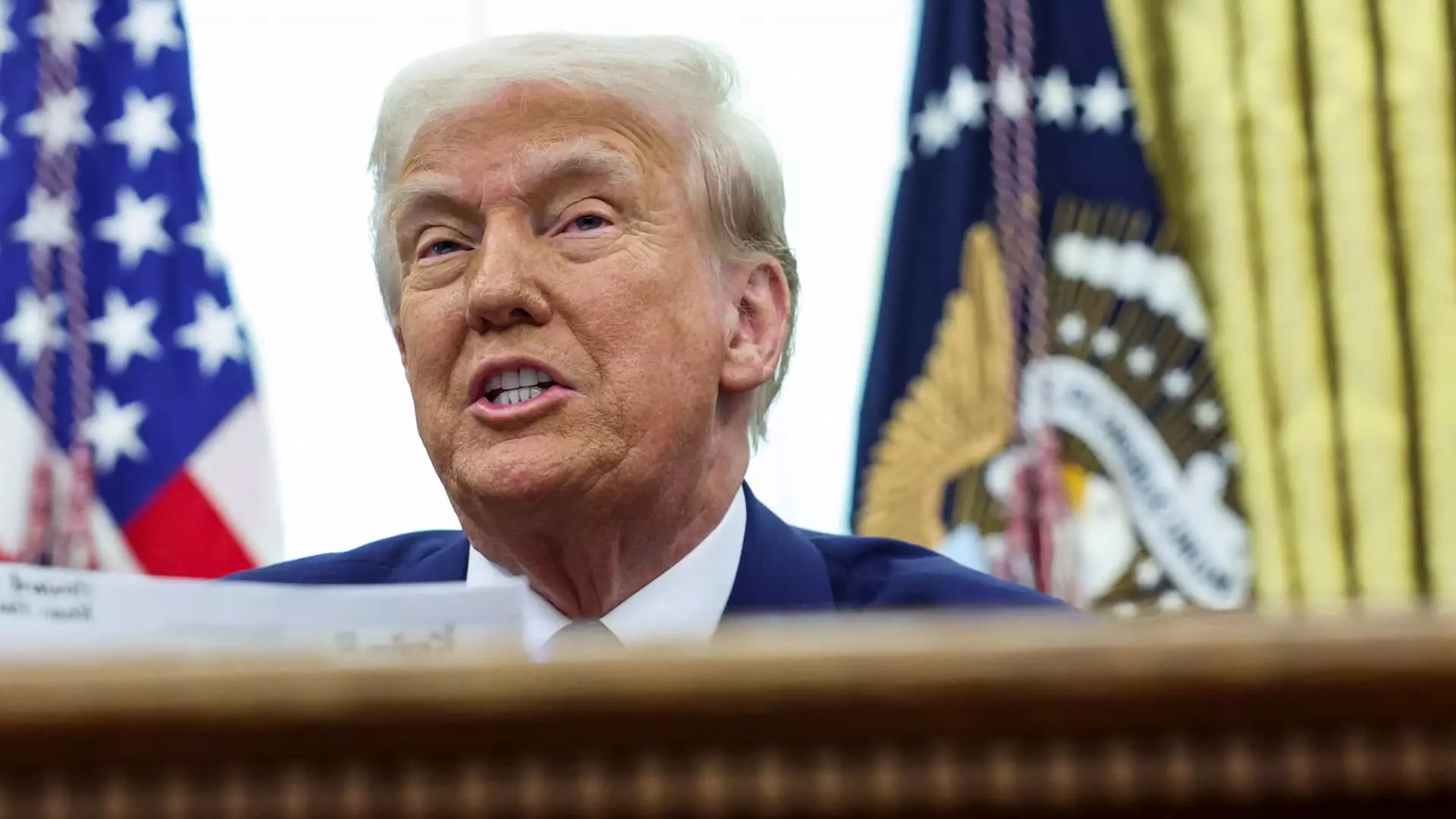In a surprising turn of events, defense stocks experienced a notable decline following President Donald Trump’s statements regarding potential reductions in U.S. defense spending. Speaking from the White House, Trump indicated that there could be a significant cut in military expenditures, suggesting the possibility of halving the current budget. This announcement sparked immediate reactions in the financial markets, sending stocks associated with defense contractors tumbling. Companies such as Lockheed Martin, Northrop Grumman, and General Dynamics saw a decrease in their share prices, reflecting investor apprehension regarding the future of defense budgets.
Trump’s comments emerged amid discussions concerning U.S. defense strategy and international relationships, particularly with nations like China and Russia. He intimated that future diplomacy could lead to substantial changes in military funding: “There’s no reason for us to be spending almost $1 trillion on the military,” he said, suggesting that these funds could be redirected towards more pressing domestic needs. The President’s intention to meet with leaders from these nations further underscores his diplomatic approach towards defense spending — a stance that has been met with mixed reactions from policymakers and analysts alike.
Throughout his political career, Trump has often sent conflicting signals regarding military spending. While he has called for reductions, he has also emphasized the necessity of maintaining a formidable military presence globally. His administration has enlisted the expertise of individuals like Elon Musk and initiatives aimed at identifying cost-cutting measures within government operations, which raises questions about the sustainability of current funding levels. Moreover, Trump has been vocal about the significance of a robust military in the context of threats around the world, as evidenced by his commitment to bolstering American defense capabilities, including initiatives like the proposed “Iron Dome of America” missile defense system.
Market Reactions and Investor Sentiments
The volatility in the defense sector indicates a broader uncertainty among investors concerning the United States’ defense budget and its future trajectory. Market analysts have noted that Trump’s varied stance has left many in the financial community unsure about how to position themselves in light of potential policy shifts. Roman Schweizer, a policy analyst at TD Cowen, observed that “people are confused by a number of different crosscurrents” when it comes to defense spending. This confusion suggests a disconnect between the administration’s long-term objectives and the immediate implications for defense contractors, highlighting the challenges they face in adapting to a rapidly changing fiscal landscape.
As debates around government spending intensify, the future of U.S. defense budgets remains a contentious issue. Trump’s dual approach to military funding poses both risks and opportunities for the defense industry, as companies must navigate the intricacies of a shifting political climate. Whether Trump’s future meetings with global leaders will lead to genuine reductions in military spending or serve merely as a rhetorical strategy is yet to be determined. For investors and industry stakeholders, the road ahead is fraught with uncertainty, and close attention will be required to decipher the implications of these pronounced shifts in defense policy.

